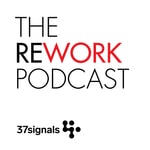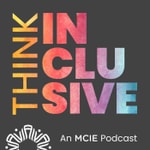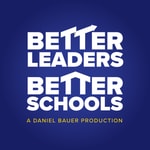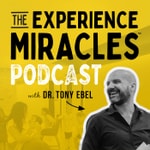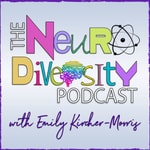Diverse Thinking Different Learning – Details, episodes & analysis
Podcast details
Technical and general information from the podcast's RSS feed.
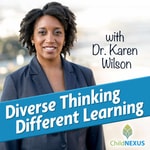
Diverse Thinking Different Learning
Karen Wilson
Frequency: 1 episode/7d. Total Eps: 230

Recent rankings
Latest chart positions across Apple Podcasts and Spotify rankings.
Apple Podcasts
🇩🇪 Germany - parenting
25/03/2025#68🇨🇦 Canada - parenting
30/12/2024#87🇨🇦 Canada - parenting
07/12/2024#97🇨🇦 Canada - parenting
19/09/2024#90
Spotify
No recent rankings available
Shared links between episodes and podcasts
Links found in episode descriptions and other podcasts that share them.
See all- https://www.hollyblancmoses.com/
199 shares
- https://www.childnexus.com/consultation
128 shares
- http://childnexus.com
126 shares
RSS feed quality and score
Technical evaluation of the podcast's RSS feed quality and structure.
See allScore global : 53%
Publication history
Monthly episode publishing history over the past years.
Ep. 203: ADHD and the Gut-Brain Connection: Exploring Integrative Treatments with Sara Langley, MSN, PMHNP-BC
mardi 17 septembre 2024 • Duration 32:45
Welcome to this episode of Diverse Thinking Different Learning, where we dive into a topic that is of growing interest to parents and caregivers of children and adolescents with ADHD: integrative treatments for ADHD symptoms. Today’s guest, Sara Langley, is an expert in Nutritional Psychiatry and will share valuable insights on how diet and integrative approaches can complement traditional ADHD treatments.
ADHD is the most searched topic on ChildNEXUS, and our episodes on ADHD are among the most downloaded. It’s clear that parents and caregivers are eager to learn about different options to support their children, and this episode is packed with useful information.
Sara specializes in how diet can impact mood and behavior, and she offers practical advice on where to begin. She suggests some starting points, but acknowledges that making dietary changes can feel overwhelming, so she shares helpful tips for parents on how to start small and build from there.
Throughout the episode, Sara discusses the common challenges faced by children with ADHD and the supplements that can help. While she emphasizes that nutrition isn’t a “cure” for a problem, it is an important piece of the puzzle. Sara also highlights the strong connection between the gut and brain and how addressing this can benefit not only ADHD symptoms but overall well-being.
If you’re looking for new ways to support your child or simply curious about how integrative approaches can complement traditional treatments, you won’t want to miss this episode!
Show Notes:
[3:16] - Sara specializes in Nutritional Psychiatry, which is about how diet can impact mood and behavior.
[5:16] - One good starting place that Sara recommends is to start integrating probiotics.
[6:28] - Supplements are commonly asked about by parents of children with ADHD and there are several that could benefit as an addition to a vitamin rich diet.
[9:17] - A lot of time, we cannot get the full nutritional benefit from the food we eat due to different factors.
[10:43] - It can be very overwhelming to parents to make dietary changes. Sara gives some tips on where to start.
[12:30] - Generally, children with ADHD have trouble falling asleep. There are supplements that can help with this as well.
[13:53] - Nutrition is part of a puzzle. It isn’t a “cure”.
[17:18] - Working with a mental health professional or pediatrician can help guide a parent in choosing the right things for their child.
[18:40] - There is a connection between the gut and the brain.
[22:31] - It is tricky for many parents to make dietary changes due to the pickiness of their child as an eater and their need for quick dopamine through snacking.
[23:47] - Some parents are seeking something different from medication.
[25:59] - This integrative approach benefits more than ADHD symptoms.
About Our Guest:
Sara Langley is a dedicated Psychiatric Mental Health Nurse Practitioner who specializes in treating children and adolescents with brain-based medical conditions. She is double board-certified in both Primary Care and Psychiatry. A graduate of the Columbia University School of Nursing, class of 2014, she later earned her Post Master’s certificate in Psychiatric Mental Health Nursing from UCSF and completed a Fellowship in Primary Care Psychiatry with UCI. Additionally, she holds a certification in Nutritional Psychiatry through the Integrative Psychiatry Institute.
In her practice, Sara integrates Nutritional Psychiatry, focusing on how diet affects mood and behavior, and Functional Psychiatry, which aims to identify and treat the root causes of mental illness. This is combined with FDA-approved traditional medication management, providing families with care that is truly comprehensive and balanced.
Connect with Sara Langley:
Links and Related Resources:
-
Episode 124: A Non-Medication Treatment for Children with ADHD with Dr. Sandra Loo
-
Episode 40: Lifestyle Activities That Can Improve ADHD Symptoms with Dr. Joel Nigg
Connect with Us:
The Diverse Thinking Different Learning podcast is intended for informational purposes only and is not a substitute for medical or legal advice, diagnosis, or treatment. Additionally, the views and opinions expressed by the host and guests are not considered treatment and do not necessarily reflect those of ChildNEXUS, Inc or the host, Dr. Karen Wilson.
Ep. 202: How Low Demand Parenting Can Reduce Stress and Support Neurodivergent Youth with Dr. Roseann Capanna-Hodge
mardi 10 septembre 2024 • Duration 35:53
Parenting is filled with moments of stress and overwhelm, especially when raising children with different neurological wiring. Many of us have faced times when our child’s behavior feels too much to handle, leaving us unsure of what to do next. That’s where today’s guest, Dr. Roseann Capanna-Hodge, comes in.
Dr. Roseann is a trailblazer in mental health, media figure, and the founder of Neurotastic™ Brain Formulas and The Global Institute of Children’s Mental Health. She is on a mission to “Change the way we view and treat children’s mental health and is known for her teachings on promoting brain calmness using science-driven solutions.
She is also the host of the It’s Gonna Be OK podcast, a go-to resource for parents navigating their children’s mental health challenges. In our conversation today, she introduces us to the concept of low-demand parenting, a style that has emerged alongside the increasing recognition of neurodivergent youth.
Throughout the episode, Dr. Roseann explains how this approach can help parents reduce their own stress by lowering demands on both themselves and their children. This, in turn, allows kids with dysregulated nervous systems to feel more secure and capable of learning critical skills like flexibility and problem-solving.
We’ll discuss how low-demand parenting can reduce anxiety in children, how to implement co-regulation techniques, and the benefits of self-regulation in creating a happier, healthier home environment.
Show Notes:[2:47] - Neurodivergence and brains that are wired differently are on the rise.
[3:27] - Low-demand parenting is a style of parenting that has come with the rise of kids who are uniquely wired. It’s a misunderstood style of parenting.
[5:11] - When kids have dysregulated nervous systems, no matter where it's coming from, they’re going to fall back on familiar behaviors.
[6:47] - We need to teach kids flexibility, coping skills, and problem solving. That is a lot harder when you’re coming in hot.
[8:15] - This style of parenting can be started at any time. But you may get some pushback.
[9:34] - One of the benefits of low demand parenting is reducing anxiety.
[10:53] - We don’t really think about our kids having activations in their nervous systems.
[12:23] - This type of parenting is really helpful particularly in current times and with current generations, but specifically with neurodivergent youth.
[13:35] - Self-regulation is key to leading a happy life.
[14:54] - We learn our parenting from our own parents and the strategies are not always helpful.
[16:32] - When you’re overwhelmed, everything feels like a mountain. The one action you can start with is co-regulation.
[18:51] - Dr. Roseann gives some starting points in learning co-regulation.
[21:19] - The hardest part is reinforcement. It’s not going to stick with just one time.
[23:13] - A common misconception is that children are trying to overwhelm us on purpose. We can guide them to healthy ways to manage discomfort.
[24:39] - The most common reason people leave college is due to their mental health.
[26:58] - Give the other parent or caretaker the information as well.
[28:42] - The more you are regulated, the more regulated your child will be. Dysregulation can negatively impact the parent-child relationship.
[30:50] - Being regulated doesn’t mean you don’t feel stress. It means that you are activated by it.
About Our Guest:Dr. Roseann stands as a mental health pioneer, media persona, and the architect of The Global Institute of Children’s Mental Health, Neurotastic™ Brain Formulas and Dr. Roseann, LLC. She's committed to altering mental health perceptions and interventions, offering a message of hope through science-endorsed methods that promote a calm brain. Her BrainBehaviorReset® Program and It’s Gonna be OK!™ Podcast has been a cornerstone for thousands facing daunting challenges such as PANS/PANDAS, OCD, anxiety, and ADHD/executive functioning, significantly bettering the lives of children and families.
Connect with Dr. Capanna-Hodge: Links and Related Resources:The Diverse Thinking Different Learning podcast is intended for informational purposes only and is not a substitute for medical or legal advice, diagnosis, or treatment. Additionally, the views and opinions expressed by the host and guests are not considered treatment and do not necessarily reflect those of ChildNEXUS, Inc or the host, Dr. Karen Wilson.
Ep. 193: Independent College Consultants: Who Needs One and When?
mardi 9 juillet 2024 • Duration 33:32
Summer is here, and many graduates are looking into the college application process. If you’re not sure where to start, a college consultant can help make this stressful period much easier for students and parents alike. Today, we dive into everything about independent college consultants. What exactly are they? What is their role, and how do they help our students?
We’ll explore who might benefit from hiring an independent consultant and address the specific needs of students with learning and thinking differences, such as dyslexia and ADHD. I’m joined by independent college consultant Matthew Hayutin, Founder and Partner at Hayutin Education. Matthew began his career as a classroom teacher and private educational therapist, working with students of all ages and learning profiles. He has extensive experience as a college consultant and homeschool teacher.
If you’re not familiar with the role of a college consultant, Matthew breaks it down with insights into how the consultant's role can be customized to meet the individual needs of students and their families. College consultants can assist with researching and vetting schools and programs, helping to ensure students find the best fit, and navigating the application and admissions process.
Matthew is passionate about his position and emphasizes the importance of helping students find ways to contribute and become active citizens. He discusses using targeted questions to understand students' needs and explore options that facilitate a smooth transition from high school to college.
This episode is a must-listen for anyone navigating the complexities of college admissions. Tune in and discover why investing in an independent college consultant could be the game-changer your learner needs.
Show Notes:[00:03] - Public School students may have a student counselor with 500 students, and the connection points are far and few between. Having someone who could work individually with the student and get to know them is very valuable.
[05:19] - Another reason that a consultant could be helpful is that they are available in the summer when your counselor isn't. A lot of work can get done in the summer to build momentum and create a runway for the fall.
[08:17] - Having someone who can really drill into what will help the student and assist with the process.
[09:19] - Why would someone seek out an independent college consultant? There are multiple reasons including access and availability, especially over the summer, expertise, skill set, and bandwidth.
[10:28] - The role of the college consultant. A strong consultant can help students create a list of schools that will accept them with open arms and ones that might be a bit of a stretch but worth the effort.
[13:53] - They also help build executive functioning instead of doing everything for the student.
[14:12] - The goal isn't just to get in. It's to find a place where the students thrive. A consultant can help find a good match for an environment where the student will thrive and ultimately graduate.
[16:54] - Asking questions is part of the process of working with an independent consultant.
[19:47] - What can we expect in terms of accommodation for students who have unique needs.
[23:11] - One of the advantages of working with a college consultant is they spend time with the student and get to know their individual needs.
[25:58] - Questions to ask when trying to determine if a consultant is a good fit is the amount of access, feedback, and timeline.
[30:02] - Working with an independent college consultant can be a valuable investment for many families trying to work through the complexity of future college.
About Our Guest:Matthew Hayutin is a Founder & Partner at Hayutin Education, a company that he founded with his sister, Amy Hayutin Contreras. Hayutin is your partner in education offering executive functioning, educational therapy, independent study, tutoring, test prep, and college consulting. They assist students and parents in making good choices in education and having a wide array of educational possibilities.
Matthew earned his advanced B.A. from Occidental College in English and Comparative Literary Studies in 1992 and his Master of Education with high honors from Pepperdine University in 1997. He also pursued additional studies in English, film, and creative writing at the University of Pennsylvania, NYU and UCLA. Matthew began his career as a classroom teacher and private educational therapist in 1997, working with students of all ages and learning profiles. Matthew also has extensive experience as a college consultant and homeschool teacher.
Connect with Matthew:-
(310) 829-7505
The Diverse Thinking Different Learning podcast is intended for informational purposes only and is not a substitute for medical or legal advice, diagnosis, or treatment. Additionally, the views and opinions expressed by the host and guests are not considered treatment and do not necessarily reflect those of ChildNEXUS, Inc or the host, Dr. Karen Wilson.
Ep. 103: How Speech-Language Therapy Helps Students with Dyslexia with Nancy Rose Steinbock, M.A., CCC-SLP
mardi 18 octobre 2022 • Duration 40:54
Today we are continuing the conversation about language skills and development, but this time we’re discussing how speech-language therapy helps students with dyslexia. In previous episodes we’ve talked about speech and language development and we’ve talked about dyslexia, but now we combine the two because they are certainly linked.
My guest today is Nancy Rose Steinbock, an absolute expert in the field of language and literacy disorders. In our conversation today, Nancy talks in length about the connection between language development and literacy and the unfortunate truth that some teachers and educators are not equipped or prepared to effectively support students who are struggling. Nancy gives fantastic tips on what to look for in the early years before school begins for a child, even when pediatricians and caregivers are saying “wait and see”.
All this and more in this conversation today with Nancy Steinbock.
Show Notes:
[3:01] - We often talk about language development and literacy separately, but they are closely linked.
[4:36] - The key to mitigating language disorders is early identification and intervention.
[5:49] - Nancy describes research that demonstrates what to look for in early stages of language development.
[7:50] - While being told to “wait and see”, there are things we can look for before professional intervention.
[9:02] - Non-verbal communication is a form of language.
[11:30] - We need to be careful about discerning the difference between a child who has a language development disability and one who is progressing differently.
[13:06] - A parent’s concern should always be considered as they know their child better than anyone. Don’t always buy into the “wait and see” approach.
[14:13] - There are times that language development plateaus and makes it appear that some are catching up when there is still an issue.
[17:11] - Many children miss out on early intervention due to the lack of understanding of the link between language and literacy.
[19:35] - One of the mistakes we’ve made in teacher education is that we’re not training teachers in the last decade in language.
[21:18] - Nancy shares the problems she ran into when working with students and teachers virtually.
[24:03] - Nancy demonstrates speech to print vs. print to speech.
[26:30] - Language encompasses reading, writing, and speaking and these are developing simultaneously.
[28:46] - Because language has been a struggle, children who have not had support become less attuned to listening and experience learned helplessness.
[31:08] - Nancy describes some of the other behaviors that develop when a student has not received the help they need.
[32:51] - This is not a quick process. This could take years.
[34:28] - Asking indirect questions when a student is engaged is much more effective.
[36:01] - It is important for students to engage with a story.
[37:40] - Connect with Nancy to learn more.
About Our Guest:
As a speech language pathologist, Nancy Rose Steinbock, M.A., CCC-SLP is an expert in the field of language and literacy disorders. Over 40 years’ experience in the field and engagement with experts in the fields of language development and disorders have developed her expertise in diagnosing and treating spoken and written language skills.
She was fortunate to complete four years of doctoral study at City University of New York, CUNY, when children identified as ‘learning disabled’ were seen to be ‘language disabled.’ Connections between early childhood speech-language development and academic under-achievement were studied across disciplines in the program.
Knowing that prevention is key to mitigating language disorders, Nancy has created numerous programs and strategies to work with teachers and students who are at risk for developing these disorders. Focusing on bilingual language acquisition and interventionist methods, she founded Inglese Dinamico, an innovative bilingual education project in Venice, Italy, where she provided extensive teacher-training in speech and language development disorders for nearly 15 years. Her ’intervention methodology’ for EL teaching has been carried over into her EL teaching for adults in her practice located on Martha’s Vineyard in Massachusetts.
Connect with Nancy Steinbock: Links and Related Resources:
- Episode 102: Everyday Activities That Help Build Language Skills with Stefanie Trenholme, MS, CCC-SLP
- Dyslexia Article
- 6 Quick Questions for Parents Concerned About Dyslexia
- Episode 21: What You Know and Don’t Know About Dyslexia with Dr. Lauren McClenney Rosenstein
- Get Reading Support
Join our email list so that you can receive information about upcoming webinars - ChildNEXUS.com
The Diverse Thinking Different Learning podcast is intended for informational purposes only and is not a substitute for medical or legal advice, diagnosis, or treatment. Additionally, the views and opinions expressed by the host and guests are not considered treatment and do not necessarily reflect those of ChildNEXUS, Inc or the host, Dr. Karen Wilson.
Ep. 102: Everyday Activities That Help Build Language Skills with Stefanie Trenholme, MS, CCC-SLP
mardi 11 octobre 2022 • Duration 37:09
There are countless opportunities built into a child’s everyday life that could be used for support in language development. The best parts are that they won’t even know they’re working on these skills and they’re fun!
Today’s guest is Stefanie Trenholme, a Speech and Language Pathologist and children’s book author. In our conversation today, Stefanie explains some common misconceptions about speech and language development and disabilities. She describes the different areas of language development and the red flags that are often overlooked or misinterpreted.
Did you know your daily routines could be used to help your child’s language development? In this episode, Stefanie really digs into the topic. Be sure to listen to the end to also hear about Stefanie’s fun book that can be used to enhance any child’s language skills and boost their motivation to read.
Show Notes:
[2:18] - There is a misconception about what Speech and Language Pathologists do.
[4:27] - Red flags for language development can look different for different kids at different ages, but Stefanie shares some common ones.
[5:52] - There are different areas of language development and for some children, they could be impacted in one area or all.
[7:00] - Some red flags are overlooked by parents.
[8:47] - Although there are different areas of language development, they are connected and often one area’s deficit impacts other areas.
[10:18] - Unaddressed language difficulties in young children can lead to behavior concerns as they are easily frustrated.
[12:12] - Kids may have a difficult time sharing about their day.
[13:27] - Language variation is another area of difficulty that is often overlooked.
[14:51] - By the time a student is in high school, social language becomes more complex.
[17:01] - Parents may not always see language difficulties when they happen most often at school.
[18:45] - Executive functioning also plays a role.
[20:50] - For all children, routines are great for language development.
[22:46] - Kids won’t know they are working on language skills because they are focused on their routine.
[25:00] - There are so many opportunities in a week to hone in on skills in daily routines.
[26:23] - Make the child an active participant in learning.
[27:42] - Stefanie has written a children’s book that parents can use to help with vocabulary and routines.
[29:36] - It is a picture book typically for “little” kids, but picture books can easily be adapted to work with any age.
[31:31] - Lola is a real dog and with her help, Stefanie demonstrates different language skills in a fun and motivational way.
[33:17] - One more thing! Cooking together is great for language skills and executive functioning.
About Our Guest:
Stefanie Trenholme is the owner of Trenholme Speech Therapy, a private pediatric practice in West Los Angeles. She has been practicing both in Canada and the United States for twenty years. She has also been a guest speaker at various private schools in both Los Angeles and New York City discussing how speech-language pathologists can help support educators in the classroom. She also goes into schools to teach students how to treat animals. In addition to being voted one of Los Angeles’s top Speech Pathologists by Expertise.com 5 years in a row, she recently was featured as one of the “Top 30 Inspiring Women To Look Out for in 2022.” Stefanie also recently published her first children’s book, “Little Lola Frenchie Loves Bathtime” which stars her therapy dog Lola. The Little Lola Frenchie™️ book series was created not only because Lola is an amazing therapy dog and loved by all who meet and work with her, but also to help children learn language - especially language through daily routines. Stefanie is currently working on her second book which should be out at the beginning of 2023.
Connect with Stefanie Trenholme: Links and Related Resources:
- Little Lola Frenchie
- Top 5 Signs Your Need a Speech and Language Pathologist
- Episode 20: How Speech and Language Difficulties Affect a Child’s Life with Carol Karp
- Helping Your Child with Language Based Learning Disabilities with Dr. Daniel Franklin
Join our email list so that you can receive information about upcoming webinars - ChildNEXUS.com
The Diverse Thinking Different Learning podcast is intended for informational purposes only and is not a substitute for medical or legal advice, diagnosis, or treatment. Additionally, the views and opinions expressed by the host and guests are not considered treatment and do not necessarily reflect those of ChildNEXUS, Inc or the host, Dr. Karen Wilson.
Ep. 101: How Parent Education and Perseverance Made the Difference with Raja Marhaba
mardi 4 octobre 2022 • Duration 53:00
Today’s guest is a force in the special education space and her journey began as a parent of a special needs child. Raja Marhaba joins the conversation today to tell you about her traumatic experiences navigating the special education system and how her journey led her to create The Jonathan Foundation.
The Jonathan Foundation for Children With Learning Disabilities is a non-profit organization that raises funds for parents who can’t afford assessments for their children. In many unfortunate situations, a child’s struggles go unnoticed, undiagnosed, and without support for too long and that wasted time impacts their education and their future.
This conversation with Raja will put you in her shoes as a parent who has learned through the eyes of her own children. She hopes that, through the work she does with The Jonathan Foundation, fewer families will experience the challenges she faced and more families will get the support they need.
Show Notes:
[1:50] - Welcome to the show, Raja!
[3:15] - Raja’s experience began 26 years ago and she has a parent’s perspective.
[5:27] - As a new mom, she didn’t know how to navigate the special education process. But, she knew her child better than anyone and she learned to be her child’s best advocate.
[7:16] - At the time, Raja found that not every piece of information was given to her.
[8:15] - Raja realized that not everything that was suggested was happening at school to help her son, Jonathan.
[9:57] - Raja describes the journey of learning her son has dyslexia.
[11:37] - He lost a lot of confidence, but acting classes helped to build it back up.
[12:42] - Raja had a lot of questions and lost faith in the school system.
[14:54] - This experience set Raja on a new path. She knew she needed to fight and advocate for her children. She sees this as a turning point in her life.
[16:35] - Back then, there was no Google. Raja’s resources for information were limited, but many of the same problems exist today.
[19:38] - This process and the lack of understanding leads to wasted time.
[20:53] - Because a psychologist took the time to explain and answer her questions, Raja understood the data from assessments.
[21:57] - The assessments could cost a family up to $15,000.
[23:55] - It is important for parents to have a professional in their corner. Raja describes some situations where advocacy was crucial.
[25:57] - Raja focused on assessments with The Jonathan Foundation because of her experience with the huge cost of assessments for her sons.
[27:23] - This experience hurt her family and her own mental health.
[28:20] - Raja describes what she learned about her children and what she learned from them.
[30:11] - Understanding her children opened up the world for her.
[32:05] - Having one child who took so much of her attention, Raja’s youngest son was impacted.
[34:51] - The sooner the better when it comes to an assessment.
[36:29] - If you feel that your child is struggling and the school has said that their evaluation revealed no difficulties, you can request another assessment.
[39:02] - The data from an assessment tells a story.
[40:41] - Donations can be made to the Jonathan Foundation to help children and families without the funds to afford a quality assessment.
[43:29] - Sometimes schools are missing a piece to the puzzle without an assessment.
[44:27] - Raja is currently writing a book and she provides a sneak peek.
[49:57] - Raja’s book will connect you with her story; she hopes that others can learn from her experience.
About Our Guest:
Raja B. Marhaba is the Founder and President of The Jonathan Foundation for Children with Learning Disabilities, Inc. The motivation for establishing The Jonathan Foundation was driven by her personal struggles with having two children with disabilities and the multiple battles she endured to obtain appropriate special education and related services from their school district over a period of eight years. The result: eight due process complaint filings, including a hearing; an appeal to the Federal Ninth Circuit District Court; as well as periods of extreme financial hardship from the cost of paying for private assessments, specialized interventions, and placements, retaining legal representation, and witness fees. Thus, Raja envisioned The Jonathan Foundation to be the vehicle she would use to assist families, like her own, in dealing with a "broken" special education system, "one child at a time". Since its inception in 2001, The Jonathan Foundation has provided families of children and adolescents with various types of disabilities with information, resources, referrals, and direct advocacy services by Raja in both special education and regional center matters.
Connect with Raja Marhaba: Links and Related Resources:
- Episode 1: Demystifying the Assessment Process
- How to Initiate a Special Education Assessment
- Episode 14: Pursuing and Pushing for a Special Education Assessment with Educational Attorney Leejanice Toback
- What is a Comprehensive Evaluation and How Can It Help Support My Child’s Learning?
- Episode 3: Neuropsychological Evaluations Through a Cultural Lens with Dr. Vindia Fernandez
- Connect with a Neuropsychologist
Join our email list so that you can receive information about upcoming webinars - ChildNEXUS.com
The Diverse Thinking Different Learning podcast is intended for informational purposes only and is not a substitute for medical or legal advice, diagnosis, or treatment. Additionally, the views and opinions expressed by the host and guests are not considered treatment and do not necessarily reflect those of ChildNEXUS, Inc or the host, Dr. Karen Wilson.
Ep. 100: Uncovering Why a Child is Struggling
mardi 27 septembre 2022 • Duration 33:28
This podcast began in November 2020 in the early months of the Covid-19 pandemic with the hopes of helping parents with a child struggling at home. I wanted to bring information and expertise into their home so they can better support their children. And now, Diverse Thinking Different Learning is celebrating 100 episodes! Let’s revisit the very first episode that sets the stage for the work we do at ChildNEXUS and the mission of the podcast.
Millions of kids struggle with learning, processing, and social difficulties. These challenges interfere with their ability to reach their full potential. My name is Dr. Karen Wilson and I am on a mission to make sure that when kids are struggling, we find out why and we give them the support they need to thrive.
Welcome to the Diverse Thinking Different Learning Podcast. This podcast is a resource for parents and educators working with children with learning difficulties. It is my hope that after listening to this show, you will better understand the challenges that some kids face and know how to help them overcome difficulties, become more resilient, maintain a love for learning, and experience more success.
Today I’m discussing what struggles look like for kids with learning challenges, what parents and educators should do when they see kids are struggling, when to consider an evaluation for a child, and the benefits of targeted intervention.
Show Notes:
[2:51] - This episode is about why the identification of learning challenges is so important. What do we do right and where do we go wrong?
[3:39] - Approximately 5% of school aged children have a learning disability and 13% of all public school students receive special education services. Another 15% are struggling due to an unidentified learning or attention issue.
[5:25] - Struggles can look different in different children. Dr. Wilson lists many different examples of what struggles look like in different children.
[6:51] - With misunderstanding sometimes comes mislabeling. Mislabeling can lead to behavioral problems and can cause a lot more anxiety.
[8:12] - We see the struggle, but what we tend to do is to rationalize the difficulty.
[10:16] - With a learning disorder, a child typically experiences trouble learning skills in the regular classroom and tends to be behind their peers in one or more areas.
[11:28] - If you don’t know what the underlying problem is, how can you appropriately intervene?
[12:30] - Some reasons a child may be struggling with reading comprehension is poor working memory, poor phonological processing, and issues with receptive language.
[16:00] - The same is true for writing. Writing is such a complex task for students to tackle.
[19:23] - If you don’t know why a child is struggling, it is difficult to give them the proper support.
[19:57] - Assessments serve as a guide for appropriate intervention to address the difficulties a child experiences.
[22:16] - When we give children the appropriate, evidence-based intervention for their specific learning disorder, we can reorganize their brain pathways.
[24:06] - Not all kids who struggle need a full, comprehensive evaluation. Some learning struggles could be tied to anxiety.
[25:13] - If a child has anxiety and a learning disorder, the intervention for the learning disorder is not enough. The anxiety also needs to be addressed.
[26:46] - When kids don’t get enough sleep, you get poor attention or other possible issues in school.
[28:56] - When a real problem remains unidentified, children may grow to have low self esteem and are at greater risk of struggling with anxiety and depression.
[30:33] - We have to move from observing the struggle to getting students the appropriate intervention and stop rationalizing the problem.
Links and Resources:
- ChildNEXUS Website
- Find a Provider
- Request a Consultation
- Search Articles
- Listen to more Diverse Thinking Different Learning episodes
Join our email list so that you can receive information about upcoming webinars - ChildNEXUS.com
The Diverse Thinking Different Learning podcast is intended for informational purposes only and is not a substitute for medical or legal advice, diagnosis, or treatment. Additionally, the views and opinions expressed by the host and guests are not considered treatment and do not necessarily reflect those of ChildNEXUS, Inc or the host, Dr. Karen Wilson.
Ep. 99: Straight Talk About ADHD in Girls with Dr. Stephen Hinshaw
mardi 20 septembre 2022 • Duration 32:21
We’ve discussed ADHD on the podcast before and it continues to be an important topic. But something we haven’t delved into yet is what ADHD looks like in girls. Dr. Stephen Hinshaw has conducted years of research including a longitudinal study on girls with ADHD and his findings are not only fascinating but important to consider especially if you are the parent of a daughter with ADHD.
Dr. Hinshaw has recently written a book called Straight Talk About ADHD in Girls: How to Help Your Daughter Thrive. Parenting a daughter with Attention-Deficit/Hyperactivity Disorder is no easy path, especially because of the myth that the disorder is rare or nonexistent in girls. In his book, Dr. Hinshaw provides vital information and advice to help you understand and meet your daughter’s needs. And in this episode, he does the same. He delivers up-to-date facts on what ADHD is, why symptoms often appear differently in girls than in boys, why girls with ADHD behave the way they do, how to get an accurate diagnosis, and what treatments are most effective.
There is so much pressure on girls to be perfect and for those with ADHD, it feels especially hard to measure up. The social stigmas and academic challenges ADHD present to girls is often isolating and painful. So listen to Dr. Hinshaw explain the science behind it all and what we can do as parents and educators to help our girls with ADHD.
Show Notes:
[2:22] - ADHD is more prevalent in boys than girls, but why?
[3:23] - Because of the difference in development, symptoms of ADHD in girls are often overlooked.
[4:27] - Girls with ADHD tend to show their symptoms differently. Many don’t get diagnosed until they are teenagers or even young adults.
[5:28] - ADHD causes problems with the self-regulation of attention.
[6:30] - It takes some time to observe and diagnose ADHD.
[7:16] - Some girls may show their hyperactivity verbally instead of physically.
[8:43] - Dr. Hinshaw conducted the largest longitudinal study on girls with ADHD.
[9:37] - In childhood, girls with ADHD are just as impaired as boys. Socially, they tend to get rejected by their peers more so than boys.
[11:26] - Dr. Hinshaw shares the differences in the larger consequences like delinquency, substance use, and mental health.
[13:34] - ADHD increases the risk of self harm and suicide.
[15:08] - Low self-esteem, difficult peer relationships, increasing academic struggles, make things challenging in young adulthood too.
[17:01] - Across many studies and types of research, both males and females and the differences between them are not taken into consideration.
[18:54] - There can be more severe social consequences of lack of early intervention for girls.
[21:39] - There are consistent inconsistencies.
[23:00] - Milder conditions or conditions that don’t have as many outward indicators, result in more stigma.
[24:52] - If you are the parent of a girl who has ADHD with a solid diagnosis, you have to show radical acceptance and commitment.
[26:33] - Motivation, regulation, and even medication are things to be considered.
[27:28] - What are your daughter’s strengths?
[28:31] - One valued and strong friendship can offset the social complications they experience.
[29:45] - Research has shown that parents of girls with ADHD tend to have much more parental stress. Parent management training is beneficial.
[31:19] - Get Dr. Hinshaw’s book for 20% off using this special Diverse Thinking Different Learning discount code: 1F2017
Stephen P. Hinshaw is Distinguished Professor of Psychology at UC Berkeley and Professor of Psychiatry and Behavioral Sciences at UC San Francisco. His work focuses on developmental psychopathology, child and adolescent mental health (particularly ADHD), and the use of clinical trials to understand underlying mechanisms. He also actively investigates mental illness stigma and interventions to reduce it. Hinshaw has authored over 400 articles, chapters, and commentaries plus 13 books. He has won numerous national and international research awards, including the James McKeen Cattell Fellow Award from the Association for Psychological Science, the Distinguished Scientific Contributions Award from the American Psychological Association, and the Sarnat International Prize in Mental Health from the National Academy of Medicine. He was inducted into the American Academy of Arts and Sciences in 2021. His extensive media coverage includes the New York Times, Washington Post, Wall Street Journal, Today Show, CBS Evening News, ABC World News Tonight, and many more.
Connect with Dr. Stephen Hinshaw:
- Email: hinshaw@berkeley.edu
- Hinshaw Lab at The Institution of Human Development at Berkeley
- Dr. Stephen Hinshaw’s Website
- GET THE BOOK! The discount code for listeners is 1F2017 and it expires September 30, 2022
- Attention Deficit Hyperactivity Disorder
- Episode 40: Lifestyle Activities That Can Improve ADHD Symptoms with Dr. Joel Nigg
- Executive Functioning and Self Regulation in ADHD
Join our email list so that you can receive information about upcoming webinars - ChildNEXUS.com
The Diverse Thinking Different Learning podcast is intended for informational purposes only and is not a substitute for medical or legal advice, diagnosis, or treatment. Additionally, the views and opinions expressed by the host and guests are not considered treatment and do not necessarily reflect those of ChildNEXUS, Inc or the host, Dr. Karen Wilson.
Ep. 98: Managing Technology Use at Home with Dr. Joe Dilley
mardi 13 septembre 2022 • Duration 36:41
With the use of technology increasing at a rapid rate among people of all ages, we have to ask ourselves how much is too much? The answer to that is kind of complicated. It depends on the content, depends on the activity, and it definitely depends on each individual user. But today’s guest shares why it is important to follow your gut if you think screen time and technology use is a deeper problem.
In this episode, Dr. Joe Dilley helps us see how to identify when kids are dependent on their electronics. This type of addiction as with any addition can be detrimental so he also shares ways we can break the addiction. We have to look for reasons and the motivations behind the use of technology and determine how much is enough and what is beyond the limit.
Dr. Joe Dilley is a licensed Clinical Psychologist practicing in Texas and California. He is also the author of a fantastic book called The Game is Playing Your Kid. This book was written pre-pandemic and although the Covid-19 pandemic changed the way we use technology, the book remains relevant and useful.
Show Notes:
[2:07] - Dr. Dilley wrote his book and a few articles for ChildNEXUS regarding technology use in kids pre-pandemic.
[3:03] - The pandemic provided an unexpected and unwelcome boost to everybody’s digital time spent.
[4:01] - Lockdowns and quarantines exacerbated an already high use of technology at home.
[5:08] - Dr. Dilley shares some of the issues high use of technology can cause.
[6:22] - Anxiety has a complex relationship with isolation.
[7:55] - We are just scratching the surface of mental health effects. What will the ripple effect be with academics?
[9:03] - Kids having to learn to read remotely during the pandemic, especially those who have learning differences, are likely to get looked over.
[11:29] - There are unique risk factors of tech use for those with ADHD and/or Autism Spectrum Disorder.
[13:36] - Technology could also be used as an escape for struggling students.
[15:27] - Trust your gut as a parent. If you are concerned that your child is spending too much time using technology, look into it.
[16:55] - Kids are going to push back.
[18:31] - “Screen time” encompasses so many types of use like television, social media, phone use, video games, and more.
[19:54] - What are the physiological and psychological effects of screen time? There are differences depending on the quality of the screen time.
[21:30] - There is a very complex relationship between the use of technology and the possible effects it has.
[22:58] - After about 3 hours, the benefits of gaming diminish.
[23:58] - Playing a video game as a team for 2 hours is much different than scrolling through Instagram for 2 hours.
[26:26] - The methods in his book have been recommended to parents by their own children.
[27:27] - Going back to school could be a great time to reset the guidelines around technology use at home.
[29:34] - There are ways to communicate with your child or adolescent that can place boundaries on technology use.
[30:41] - This isn’t a quick process and it can be difficult.
[31:31] - It is much easier to just put the kids in front of the screen, especially the younger ones.
[33:22] - Seize the opportunities to make some changes.
About Our Guest:
Dr. Joe Dilley graduated from the University of Iowa with honors and high distinction in Psychology. He then brought this multifaceted view of the human psyche to his doctoral studies at Northwestern University, where he completed his Ph.D. in Clinical Psychology. Now a licensed psychologist practicing in Texas and California, Dr. Joe specializes in the assessment and treatment of anxiety, ADHD, and Gaming Disorder. His book The Game Is Playing Your Kid: How to Unplug & Reconnect in the Digital Age offers practical and fair approaches to managing screen time, even in the COVID era.
Connect with Dr. Joe Dilley:
- Synergy Psych Website
- Phone: (626) 539-2001 x1
- The Game is Playing Your Kid by Dr. Joe Dilley
- How to Unplug and Reconnect in the Digital Age by Dr. Joe Dilley
- Clarifying Gray Areas in Family Tech Use
- Family Tech Use Part 2: Resolving Common Dilemmas
- Episode 24: Should We Worry About Screen Time During a Pandemic? with Dr. Allison Kawa
Join our email list so that you can receive information about upcoming webinars - ChildNEXUS.com
The Diverse Thinking Different Learning podcast is intended for informational purposes only and is not a substitute for medical or legal advice, diagnosis, or treatment. Additionally, the views and opinions expressed by the host and guests are not considered treatment and do not necessarily reflect those of ChildNEXUS, Inc or the host, Dr. Karen Wilson.
Ep. 97: Building Communities of Support and Resistance with Dr. Bibi Pirayesh
mardi 6 septembre 2022 • Duration 40:46
This episode may make you angry but I am hoping that it will also motivate you to advocate for change. I’ve invited Dr. Bibi Pirayesh back to the Diverse Thinking Different Learning Podcast to talk about learning disabilities as a social justice issue. This topic is certainly charged and rightfully so. Today, we discuss whether our current education system was built for neurodiverse learners.
It is hard for me to believe that Dr. Pirayesh fell into educational therapy by accident as she is extraordinary at the work she does. She is also an extraordinary advocate. Her work in the field is tireless and in this episode, she and I discuss the hardships we face as a society that does not allow all learners to reach their potential.
Show Notes:
[2:47] - Welcome back, Dr. Pirayesh!
[3:53] - Learning disabilities is a social justice issue and in recent years social justice has become extremely politicized.
[5:10] - While social justice is typically viewed as based around race, gender, and sex, it is all connected through ableism.
[6:19] - Why people may feel frustrated and feel like they can’t move forward.
[8:19] - What is the ideology that fuels ableism in the education system?
[9:57] - The way that it is, isn’t necessarily the way it is supposed to be. It’s just the way it was built and the education system is working exactly the way it was designed.
[11:10] - The education system was designed to be competitive.
[13:53] - When you read special education law, it becomes clear that this system is created in a specific way.
[15:56] - As a system, we don’t always interpret the science correctly.
[16:54] - During the pandemic, people became more aware of learning problems and mental health issues, but this is not a new problem.
[18:41] - Dr. Pirayesh was hopeful in the beginning of the pandemic when there were fast changes in education, but things are settling back to where they were as the pandemic slows.
[20:18] - One positive change is access to mental health support, but we haven’t made any shifts for marginalized students who learn differently.
[22:10] - Reading is one area where research is plentiful and solid and yet we aren’t making changes in the system.
[23:16] - There is a connection between the prison system and education system.
[26:09] - Many people, including Dr. Pirayesh, have felt at times hopeless for change.
[27:45] - Small change is a starting point and Dr. Pirayesh sees the impact of individuals and schools being receptive to advocacy.
[29:49] - Change is absolutely possible.
[31:21] - Dr. Pirayesh shares some mindset shifts she has had to make in her business and personal life.
[33:04] - There are hopeful things in a society that isn’t built for everyone. Having these conversations isn’t enough. There has to be action.
[34:42] - How are people coming up against the system and what is the result?
[37:10] - Share your story here.
About Our Guest:
Dr. Bibi Pirayesh holds a Bachelor's degree in Neuroscience and Education from the University of Pittsburgh and a Master's degree in Developmental Psychology from Columbia University where her work focused primarily on children’s development of mathematical thinking and cognitive neuroscience. While the emphasis of Dr. Pirayesh’s work is on remediating learning disabilities in a one-on-one setting, she is also a sought after speaker and community advocate for children and families around learning rights. Bibi works with children grades 1-12 and covers a wide range of learning difficulties including dyslexia, ADHD, and spectrum disorders. Dr. Pirayesh completed her doctoral work at Loyola Marymount University where she is also faculty and is involved with a number of service organizations including The Association of Educational Therapists.
Connect with Dr. Bibi Pirayesh: Links and Related Resources:
- Episode 5: Educational Therapy, Distance Learning, and Social Justice with Dr. Bibi Pirayesh
- 6 Quick Questions for Parents Concerned About Dyslexia
Join our email list so that you can receive information about upcoming webinars - ChildNEXUS.com
The Diverse Thinking Different Learning podcast is intended for informational purposes only and is not a substitute for medical or legal advice, diagnosis, or treatment. Additionally, the views and opinions expressed by the host and guests are not considered treatment and do not necessarily reflect those of ChildNEXUS, Inc or the host, Dr. Karen Wilson.
